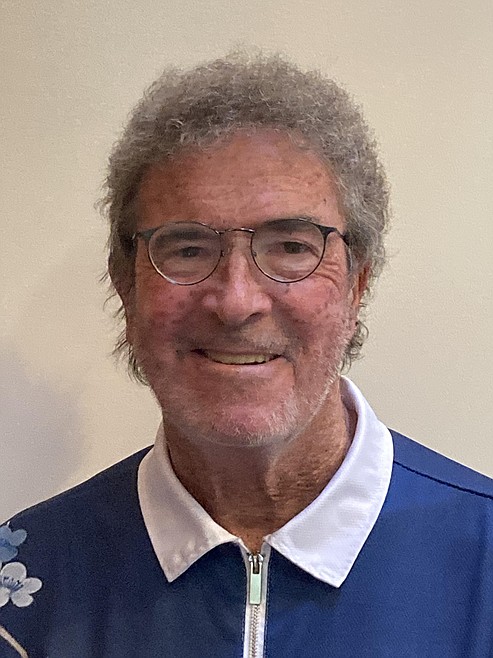THE CHEAP SEATS with STEVE CAMERON: New recruiting rules certainly don't help the likes of Zags, WSU
College sports are now fully professional.
Oh, there’s been money sloshing around forever, and it came right up front with the legalization of “name, image and likeness.”
NIL.
In the rare case that you aren’t familiar with exactly what that means — and how it’s changed your favorite sports — the phrase refers to intercollegiate athletes being allowed to profit from their name, image, etc.
It prohibits the NCAA from stopping athletes who wish to earn money by, say, appearing in TV ads.
For a casino, maybe.
Obviously, NIL has brought a lot of cash to the surface, and groups called collectives — representing specific universities — now toss boatloads of money together for their favorite quarterback or point guard.
One thing these collectives could not do (at least without the wrath of the NCAA unleashed against the school they represent) was to flat-out spend their money on recruiting.
They couldn’t promise deals ahead of time.
Sure, we all knew that it was going on — longtime broadcaster Verne Lundquist did SEC games for decades, and when he retired in 2018, he called the entire college football ecosystem “just one giant sewer.”
NOW, WE all get to sniff that odor.
On Friday, a judge in Tennessee issued a ruling that will bring the rats running to the surface.
Once all the appeals, and battles in individual states, yada, yada, are finally complete, money for recruiting is going to be legal.
This is the evil that the NCAA has, for years, called “pay-for-play,” and it’s almost surely here to stay.
Here’s the breakdown, courtesy of Front Office Sports.
“Late Friday afternoon, Judge Clifton Corker, in the Eastern District of Tennessee, granted a preliminary injunction barring the NCAA from enforcing any of its regulations around name, image, and likeness deals. The ruling could contribute to the death of NCAA amateurism—which is already on life support.
“The biggest consequence: NIL collectives and boosters are no longer prohibited from negotiating deals before athletes commit to a school, ensuring that deals can become part of the recruiting process.
“In a 13-page ruling, Judge Corker said the NCAA’s prohibition on these negotiations ‘suppresses price competition by limiting negotiating leverage and, as a result, knowledge of value.’
“The ruling will have other consequences as well. Among them: Athletic department officials can now facilitate NIL deals. Media companies can offer players NIL deals as a share to generate broadcast revenue.”
States which have their own laws against offering money to amateur athletes are not likely to get in the way as this tsunami of cash comes washing over them.
After all, they’ll be under immense pressure to enact legislation allowing universities in their states to keep pace with the competition.
Lawmakers who block the doorway could be looking for work rather quickly.
The NCAA can appeal all this, of course, but that body had its teeth yanked long ago.
The bottom line is that now, everything that used to be illegal (according to the NCAA) in recruiting and paying athletes, is now a free-for-all with very few restrictions.
IT MIGHT be difficult to find any restrictions at all.
And when cash is king, the rich rule the neighborhood.
We’ve already watched the grubby spectacle of schools chasing media money by switching conferences — leaving schools like Washington State to look around and wonder what happened to the good old days.
Even big-time programs have shown that they could be a little nervous by this street war in college sports.
Recently retired Alabama coach Nick Saban was one of the “haves” in the scramble for talent.
But now it scares him.
"Listen, I'm for the players,” Saban said in an ESPN interview.
“I want to see the players have a great quality of life and be able to create value for themselves.
"But I think the consequence of (players aiming only at immediate money) could come down the road when some of these guys get 28 and 29 years old, that maybe they didn't prepare themselves for when they can't play football anymore.”
Saban scoffed at NIL.
"What you have now isn't name, image and likeness," he added. "A collective has nothing to do with name, image and likeness."
On their Gonzaga-themed podcast, former Zag stars Adam Morrison and Dan Dickau discussed the difficulty of keeping up as giant universities, represented by massive collectives, scoop up the best talent.
“It’s going to be difficult,” Dickau said. “Gonzaga has great alums and donors, people who have allowed the school to fund super athletic programs.
“But the amounts of money that we could see in the future, it may really hurt schools like Gonzaga.”
That story is also true down in Pullman, where the Washington State athletic department is already hugely in debt, and the university is searching for conference stability after being abandoned by 10 members of the Pac-12.
Wazzu has loyal donors, but the same media-driven forces that wrecked the conference are going to show up with NIL cash — and the recruiting will explode.
Nothing, absolutely nothing, feels good about this.
Email: scameron@cdapress.com
Steve Cameron’s “Cheap Seats” columns appear in The Press four times each week, normally Tuesday through Friday unless, you know, stuff happens.
Steve suggests you take his opinions in the spirit of a Jimmy Buffett song: “Breathe In, Breathe Out, Move On.”


